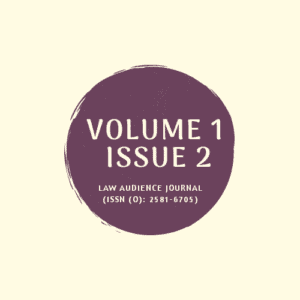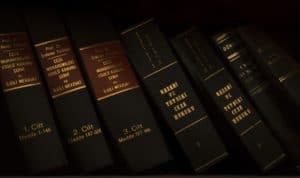WRITTEN BY: MR. PRANAV TOMAR, B.A.LL.B, 1ST YEAR STUDENT AT RAJIV GANDHI NATIONAL UNIVERSITY OF LAW & RESEARCH WRITER AT LAW AUDIENCE.
CASE NAME: K.S. PUTTASWAMY (RETD) V. UNION OF INDIA (AADHAAR JUDGEMENT) WRIT PETITION (CIVIL) NO. 494 OF 2012.
PETITIONER NAME: K.S. PUTTASWAMY (RETD).
RESPONDENT NAME: UNION OF INDIA.
DECIDED ON: 24TH AUGUST 2017.
CITATION: 2017 10 S.C.C. 1.
INTRODUCTION:
Some call it freedom, some call it a right or some call it Privacy. Since the formation of the constitution, Judiciary has played a crucial role in protecting its subjects from injustice and inequality. It is the role of the court to adhere to the social engineering of the society while interpreting the law and evolve the system as it deems fit. Puttaswamy case, famously known as Aadhaar case laid the foundation of Right to Privacy in the Indian Society. It overruled the decisions given earlier in various cases.[1] This landmark case has widened the scope of fundamental rights of individuals. It was decided on 24th august, 2017 by a unanimous judgment given by the nine-judge bench.
BACKGROUND:
The matter in hand was whether privacy is a right under article 21[2] of the Constitution. This question arose in 2015 before a three-judge bench of the Apex court considering Aadhar scheme to possess potential threat for an individual’s data is a breach of right to life and personal liberty. But it was argued that Right to privacy is not a part of Article 21 since the larger benches of the court in the cases M.P. Sharma v. Satish Chandra[3] (eight-judge bench) and Kharak Singh v. Uttar Pradesh [4](six-judge bench) had refused to accept it in the purview of Fundamental Rights. Consequently, the bench referred this matter to a five-judge to ensure “institutional integrity and judicial discipline”. The bench suggested forming even a larger bench as an eight-judge bench has already decided on the matter and a nine-judge bench should be formed to articulate authoritatively on the status of the right to privacy. In this context, a nine-judge constitutional bench was set up to conclude whether the right to privacy was guaranteed as an self-determining fundamental right succeeding conflicting decisions from previous Apex benches.
FACTS:
In January, 2009, Aadhar scheme was launched by the Government in order to create the world’s largest unique identification system in which every citizen of India was awarded a unique 12 digit code based on their demographic and biometric data. A statutory authority named Unique Identification Authority of India (UIDAI) was set up to be responsible for handling of the data. The objective was to create unique IDs that help the Government in implementing schemes and distribute subsidiaries. This will empower the marginalized sections of the society particularly those who are living in wretched poverty and are illiterate to claim various privileges and benefits. Soon after its implementation, issues started heating up. It was argued that Aadhar scheme is violating the right to privacy of an individual by collecting sensitive information. It was seen as a threat to life.[5]The case has been brought by retired High Court judge K S Puttaswamy against the Union of India. According to his claim, Aadhar scheme violates article 14[6] and 21 of the constitution as the individuals are not told about the probable ill-use of the data. The challenge was made before the nine-judge bench to determine whether Right to Privacy is a fundamental right or not and whether the Aadhaar scheme is unconstitutional.
ISSUES RAISED:
- Whether right to privacy is a Fundamental Right under Article 21 of Part III of the Constitution of India, 1950.
HELD:
The petitioner argued that right to privacy is a fundamental right guaranteed by the right to life with dignity. Being a part of Article 21, it comes under the purview of Basic structure doctrine. The respondent submitted that the constitution only recognizes personal liberties which may integrate the right to privacy to a limited extent.
The nine-judge bench unanimously held that Right to Privacy is a part of an individual’s dignity and satisfies itself to as a natural right. Apex court overruled all the previous court’s rulings and declared that Right to privacy is a Fundamental Right under Article 21 of the Constitution of India, 1950. As long as the sanctity of the Aadhar scheme was concerned, it was held that it was not unconstitutional as long as it’s voluntary. The court had multiple views on Privacy:
Justice Chandrachud, writing a multiplicity opinion stated that privacy is not alien to other fundamental rights under Part III. It can be classified as an unchangeable natural right which is necessary for maintaining human dignity. He urges that, due to fast developments in the country sooner or later there’ll be a need for a data protection law and positive obligations by the state. According to him, “there are both negative and positive elements of privacy; the former restricts the State from unfairly interfering in the privacy of individuals, while the latter obliges it to put in place a legislative framework to restrict others from doing so.”
According to Justice Chelameswar, “Right to privacy comprises of three facets, namely repose (freedom from unwarranted stimuli), sanctuary (protection from intrusive observation) and intimate decision (autonomy to make personal life decisions).”
Justice Nariman also validates Gary Bostwick’s understanding of privacy as encompassing “repose, sanctuary, and intimate decision”. He states that right to privacy is divided into three categories. Namely, i) that which involves trespass to person by state’s invasion; ii) Unauthorized uses of information and; iii) individual autonomy over fundamental personal choices.
Justice Bobde is of the opinion that fundamental rights have two facets –firstly, to limit the legislative powers and secondly, to provide rights in order to flourish the conditions for the development and dignity of individuals.
On the other hand, Justice Kaul stated that an individual can claim privacy against state as well as non-state actors. With respect to the state, individual recognizes the potential threats in profiling and surveillance whereas against the non-state actors he focuses more on impact of technology i.e. data generation, collection and use in the digital economy. Justice Kaul also advocates that “technology’s impact on the actions of an individual and the consequential chilling effect it may have on free speech and expression.” He thus notices the necessity to protect certain information from both the State as well as non-state actors.
Lastly, Justice Sapre majorly focuses his opinion restricted to importance of Preamble of the constitution. He asserts how an individual can connect his right to privacy with the principles of liberty, dignity, and fraternity enshrined.
Even after opposing judgements in M.P Singh and Kharak Singh cases, the Supreme Court of India evolved itself in overruling and altering the judiciary’s jurisprudence. It advocated that privacy in an integral part of “personal liberty” covered under Article 21 of the Constitution which needs to be maintained unless denied through “procedures established by law”. The procedures so established must be “just, fair, and reasonable”.
CONCLUSION:
A nine-judge bench of the Apex court held unanimously that the right to privacy is a constitutionally protected right, as well as being accompanying with other freedoms guaranteed under Part III of the Constitution of India, 1950. The case was brought by a retired high court judge who challenged Government’s proposed Aadhaar scheme for a uniform bio-metrics based identity system. A unique 12 digit code was generated for every individual and it was made a mandatory condition in order to avail schemes and privileges. The Court was of the opinion that privacy is a facet of fundamental freedom or liberty guaranteed under Article 21 which states that: “No person shall be deprived of his life or personal liberty except according to procedure established by law”. Privacy is new born right of today’s era. Due to fast technological developments in the world, data protection is the foremost duty of the government. Further, the case is likely to be of wider significance as privacy campaigners use it to pursue the constitutional debate over privacy in other countries. The present case widens the purview of freedom of expression by advocating privacy as a natural right, as any opposition to this would infringe the fundamental right of an individual which is backed by constitutional sanctions. This will expand the scope of privacy regarding state surveillance, religious expression and data protection.
Till now, privacy was not considered as a fundamental right because the decisions given in the cases of M.P Sharma and Kharak Singh were binding on the lower courts.as this decision was given by a historic nine-judge bench of the Apex court.[7] Therefore, it established a binding precedent on all courts, unless overruled by a larger bench. The real test of privacy will lie in how subsequent Courts apply the Puttaswamy decision to determine these varied questions.
[1] M.P. Sharma v. Satish Chandra 1954 A.I.R. 300: Kharak Singh 1963 A.I.R. 1295 (India).
[2] No person shall be deprived of his life or personal liberty except according to procedure established by law.
[3] M.P. Sharma v. Satish Chandra 1954 A.I.R. 300 (India).
[4] Kharak Singh. 1963 A.I.R. 1295 (India).
[5] Article 21, Constitution of India, 1950.
[6] The State shall not deny to any person equality before the law or equal protection of law within the territory of India.
[7] Article 141, Constitution of India, 1950.



